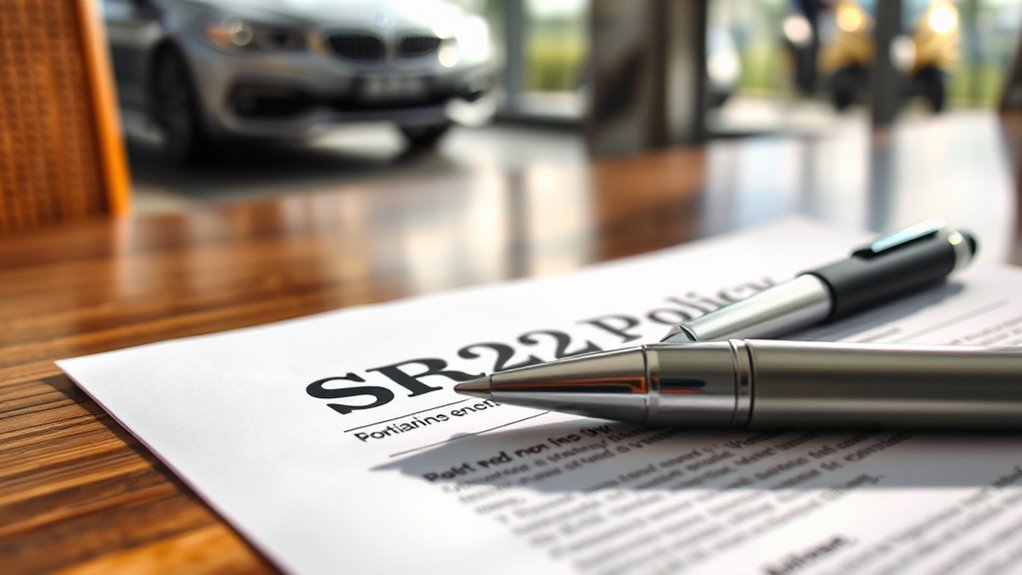What Distinguishes SR22 Policies for Non-Drivers?
If you've recently lost your vehicle but still need to meet financial responsibility requirements due to a DUI, you might consider an SR22 policy for non-drivers. These policies differ notably from traditional SR22s, primarily focusing on liability coverage instead of vehicle coverage. Understanding these distinctions is essential to ensuring you're adequately protected while driving borrowed or rental cars. What else should you know about the implications of choosing this type of policy?
When you think about insurance, you might assume it only applies to vehicle owners, but SR22 policies for non-drivers play an important role in maintaining legal driving status. These unique policies cater to individuals who don't own a vehicle yet need to demonstrate financial responsibility to the state. SR22 insurance isn't a traditional insurance policy; rather, it's a state-mandated form that verifies a driver's coverage, particularly for those categorized as high-risk, such as those with DUI or DWI convictions. Additionally, understanding the nuances of non-owner SR22 insurance can help ensure you choose the right policy for your situation.
One of the key distinctions is the focus on liability coverage rather than vehicle coverage. When you opt for a non-owner SR22 policy, it protects you when driving borrowed or rental vehicles but doesn't cover the actual vehicle itself. This is significant for individuals who may occasionally drive but don't own a vehicle. The requirement for maintaining minimum liability coverage in this context helps prevent uninsured driving and guarantees that you meet state mandates while reinstating your driving privileges after a suspension.
To qualify for a non-owner SR22 policy, you must possess a valid driver's license and not own a vehicle. If you live with someone who owns a vehicle, this could disqualify you from obtaining this specific type of SR22. Unlike owner policies, which generally include extensive coverage options, non-owner policies focus solely on liability. This makes them more affordable, with filing costs typically ranging from $15 to $25, though premiums may be slightly higher than standard non-owner insurance due to the added requirements of the SR22.
Obtaining a non-owner SR22 insurance policy involves contacting an insurance provider that offers SR22 filings. You'll need to purchase a non-owner car insurance policy that meets your state's criteria and inform your insurer about your SR22 filing requirement. Once your insurer files the SR22 form with the DMV, you must maintain coverage consistently to avoid any policy lapses. If you allow your coverage to lapse, your insurer is obligated to report this to the state, which can result in further repercussions, such as license suspension or an extension of the SR22 filing period.
Another significant difference between non-owner and owner SR22 policies lies in their coverage scope. Owner policies typically cover both personal liability and the vehicle, making them more extensive and consequently more expensive. Contrarily, non-owner policies are cheaper and don't provide coverage for injuries sustained by the driver themselves, reflecting their limited nature. This distinction is important for understanding your insurance needs and options.
Conclusion
In conclusion, SR22 policies for non-drivers are like a safety net, catching individuals who need to prove financial responsibility without the burden of vehicle coverage. They're crafted for those traversing the roads of life without a car, ensuring compliance while keeping costs manageable. By focusing solely on liability, these policies allow you to borrow or rent vehicles with confidence, shielding you from potential financial pitfalls. Ultimately, they serve as an essential tool for maintaining your legal driving status.
